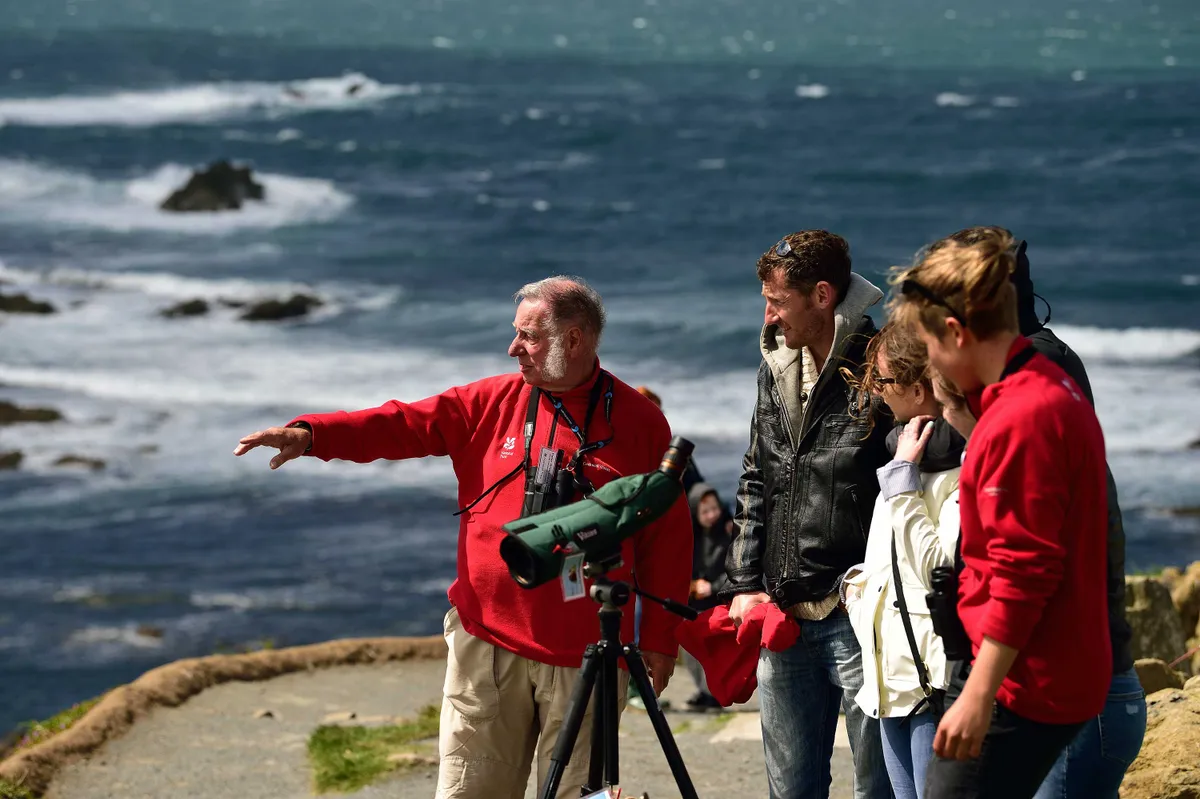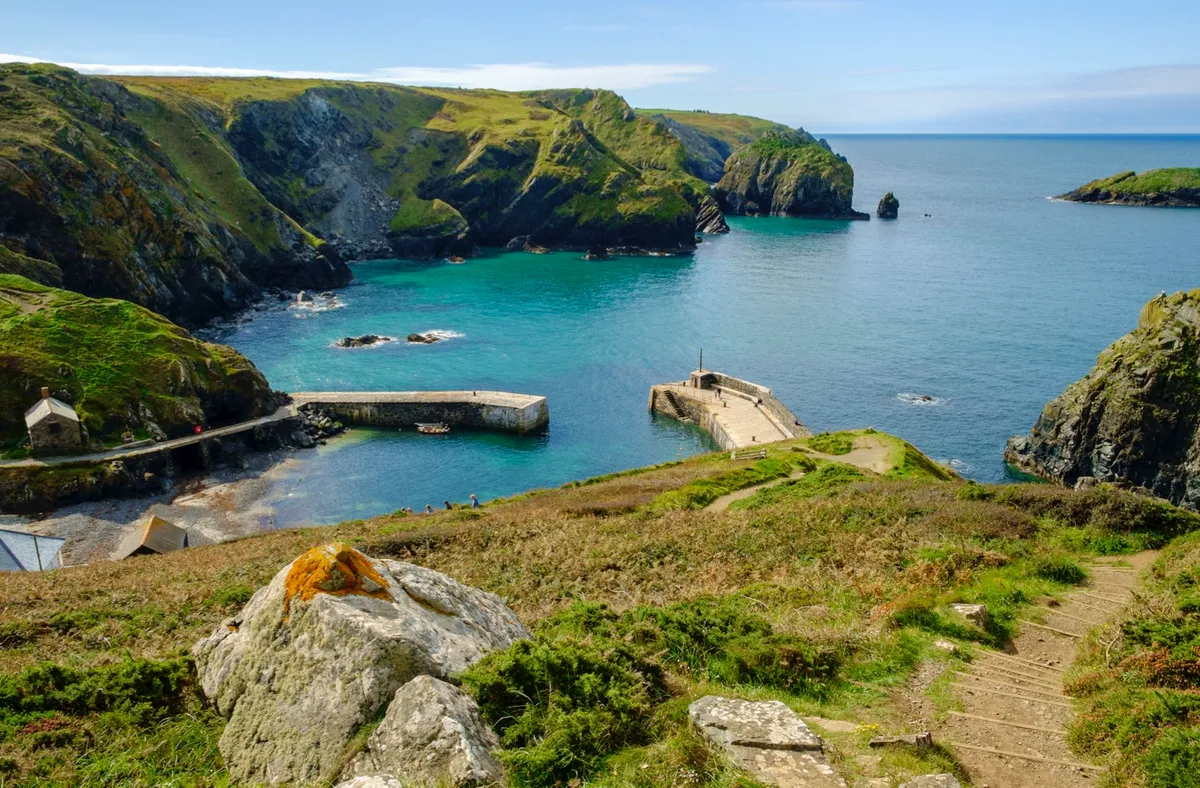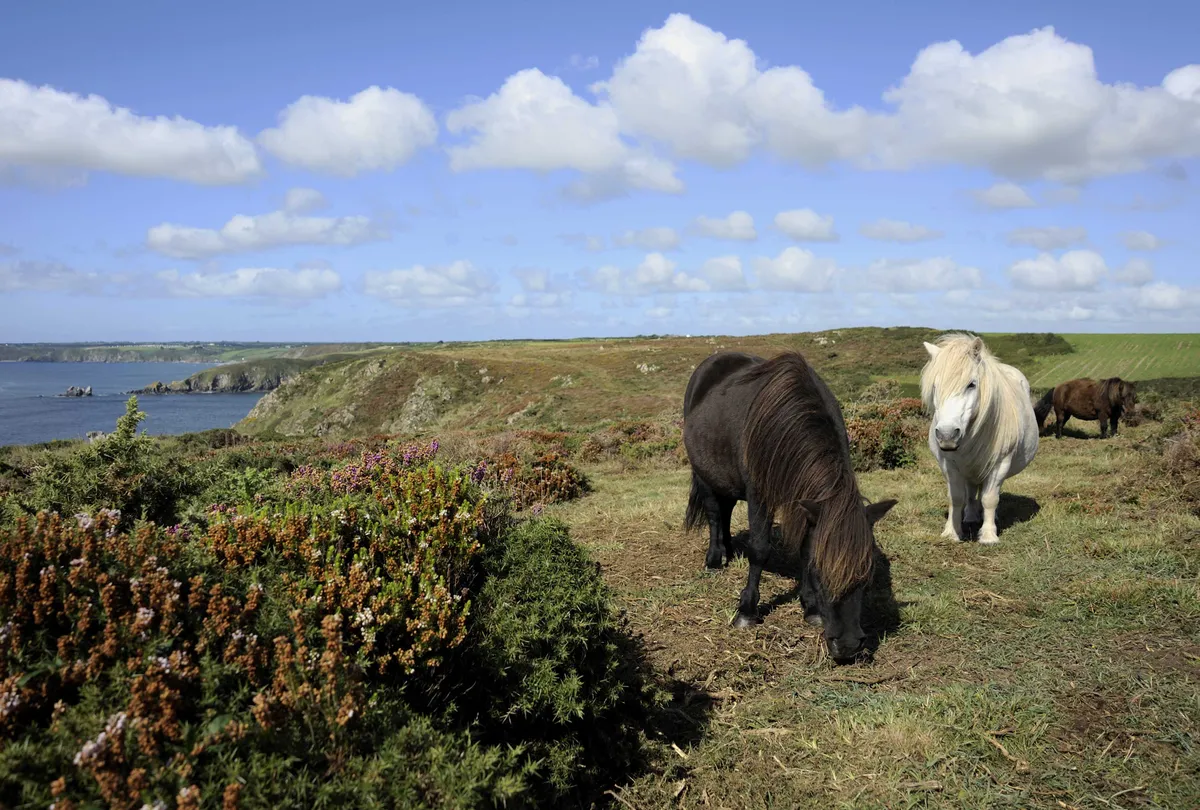What does a typical day as a volunteer ranger involve and why is it good for your health?
When Heidi Reynolds was diagnosed with Parkinson’s disease at 38, she left her job in the police force in London and moved to the Lizard Peninsula, Cornwall.
Here she tells Thea Jeffreys about her new life as a volunteer ranger, the advantages of living close to nature and her most incredible wildlife experiences.

What led you to become a volunteer ranger?
In 1998, I walked through the doors at Hendon Metropolitan Police expecting to have a 30-year career. In around 2008, I started to get quite severe shoulder pain. I went through various operations, procedures and a lot of puzzled-looking doctors before finally ending up in front of a neurologist in 2014, where I was diagnosed with Parkinson’s.
On the very same day that I was diagnosed, I was asked to make a phone call to the work doctor and they medically retired me. Parkinson’s is something you can argue or fight, but as the doctor very rightfully said, what would I prefer? Do I spend the best years of my life fighting sickness, or do I go and have the best years of my life doing the things I love to do?
Moving to Cornwall was always something we wanted to do so that’s what we did. That was our silver lining. You can’t help but be inspired by the wildlife here.

What does a typical day as a volunteer ranger involve for you now?
The Lizard Peninsula is the most southerly point of mainland UK. We get amazing marine life here; we have seals, dolphins, porpoises and basking sharks, all sorts of things. We also, very excitingly, have an increasing chough population at the moment.
I learn a lot about these animals, the mammals and all the bird life. I get as much inspiration from the people that come down to visit me as I do, I hope, inspire them to understand the unique flora and fauna that we have down here.
Very often, people come down here just because they want an ice cream. The fact that I can then inspire them by showing them wildlife through the telescope and letting them have a ‘wow’ moment really lifts me.

How does working in the natural world influence your life and condition?
I founded a worldwide organisation for people with Parkinson’s and I suddenly found myself doing more and more things to do with it. Whilst I enjoy that and am very passionate about it, I think it’s so lovely that I put on my red t-shirt and suddenly I’m just Heidi from the National Trust. I’m not Heidi with Parkinson’s or any other illness.
I’m inspired by being in Cornwall. I live very near the sea, and as I don’t sleep very well because of my condition, I often go down to the beach first thing. Often there’s an egret fishing, not a sound, and the light hits your face. It makes you think - what a wonderful pace to be.
One day I started to notice the sea glass. I loved sea glass jewellery, so I decided to have a go at making my own. They started off being ‘thank you’ presents, and then I started my business Pebble-tastic Sea Glass. It’s given me another lease of life; it’s another string to my bow, and another chance to get outside and be amongst wildlife. I also love the fact that I’m cleaning up the beaches and doing my bit in the process.

What advice would you give to someone thinking of moving to the countryside?
Regardless of your background, your age, whether you have a disability, there are huge opportunities here. When I was medically retired, I thought I’d been thrown on the rubbish pile. I questioned what I had to offer the world.
My life as a volunteer ranger with the National Trust has given me that sense of worth back. Working as a ranger has made me feel like I really do have something to give and now, despite everything else going on, it makes you still feel so positive. That’s the beauty and the calmness that nature can give you.
To be able to put my wetsuit on, walk down the road and go for a swim and just be surrounded by nothing but the sound of the water and seabirds flying past, maybe the odd seal, what could get better?
What’s your most memorable experience working on the Lizard Peninsula?
A lovely family of four generations had come down to the Lizard for the day from London.
They’d never been to Cornwall, and they’d come because their Grandma wanted to see a dolphin. Somebody somewhere was definitely shining down on us that day because we didn’t just see dolphins, but bottlenose dolphins who are incredibly rare. We saw a whole pod of them and the family all started crying.
Firsts like this are amazing, but I get just as excited every time I leave my car and walk to the corner where you get this amazing vista across this stunning Cornish coastline. Whether it’s blowing a gale and creating fabulous rainbows or a flat calm day where you can see for miles, you just think to yourself, that’s not a bad walk to the office.
To find out more about volunteering opportunities, visit the National Trust